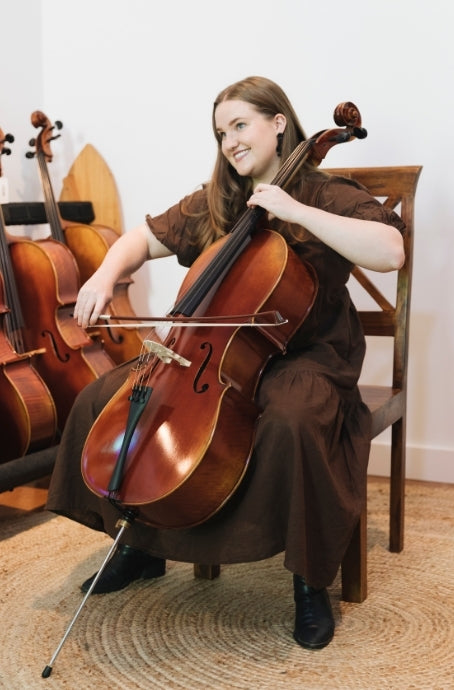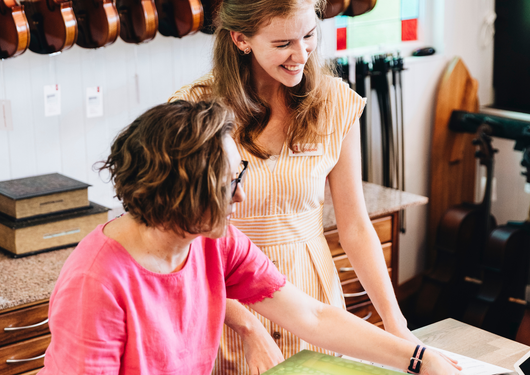We’ve all been there - as children ourselves, we’ve been bored in music lessons, or nervous about upcoming exams. As parents, we’re not sure about whether to keep pushing or give in to the complaints of attending another early morning rehearsal. If your child is expressing the desire to quit music lessons, we’ve got some tips for you.
It’s important to think long-term. Don’t simply let your child give up without understanding why they want to quit, or without working with them first to encourage enjoyment. The benefits of learning a musical instrument are long-term and immense, ie health benefits, brain connectivity, higher levels of social skills, better executive functions, inhibitory control, which are all skills to help your child throughout their life. Learn more about these benefits here, with insights from leading researcher Anita Collins. As a parent, you’re giving them something that they will thank you for decades down the track. Although a 9 year old may not see the benefits of what they are learning right now, here are some other ways to go about keeping your child enrolled in lessons.
1. Chat and ask why
Sometimes a child enjoys lessons over orchestra, or orchestra rehearsals over practicing at home. It’s important to have a conversation with your child and ask them why they would like to quit lessons. Some issues raised by your child may be able to be solved without resorting to quitting music entirely.
As a parent, it is easy to get frustrated with your child - you’ve probably invested a fair amount of money at this stage, but it’s important to let your child express their concerns in a safe space. The last thing they’ll want to hear is “I used to learn an instrument and I wish I kept going!”
Often the answer is - it’s boring. Why is it boring them? What makes it boring? Is it boring because you understand it and are doing it already? Chances are in this situation, your child understands what they are doing really well, and just need extending. Push past ‘it’s boring’ to get to the real answer because you’ll then have a starting point.
2. Is it the wrong instrument?
In our experience, many children have become bored or frustrated in lessons due to a lack of interest in the instrument they have been given to play. We recommend exploring as many instrument options as possible to see if there is something else they are interested in learning. Sometimes it’s as simple as wanting to play the violin instead of the cello. You’re most welcome to book an appointment at Simply for Strings with one of our instrument specialists, who can demonstrate the instruments for you and your child, and let them try the instruments out themselves.
Learn more about renting vs buying a musical instrument.

3. Make practice fun
Work with your child and their teacher to set realistic and achievable practice goals. It’s far more beneficial to your child’s development for them to practice 5 minutes a day, 5 days a week, compared to one 20 minute session on a Sunday afternoon. Read 3 violin practice tips that parents will love right here.
When it comes to making practice fun, if your child has expressed that they are bored by their technical studies or repertoire, invest in fun and simple sheet music. Keeping the options short, sweet and easy ensures that they don’t need to work on the pieces for too long before they master them. Books with downloadable backing tracks can help make this fun too. Then, these pieces can easily slot into their daily practice sessions to keep them more entertained.
If your child has expressed nerves about performing, why not schedule a monthly concert in the safety of the living room? Performing for pets, parents and grandparents can be a great way to ease your child into performing.
Read what to do when children baulk at practicing.
4. Offer a break
If your child is transitioning to high school, or balancing other extracurricular activities, a term break can be an effective deal. You may find before the break is up, that your child has returned to playing their instrument a couple of days a week just for fun.
If it is a matter of balancing other activities, a roster on the fridge can be an easy fix. When sports, practice, homework, afternoon tea, tv time and playtime are on the fridge, it’s easier to see where everything fits.
If, after working with your child or teenager, they still express the desire to quit lessons, it’s important to put a positive spin on it - from “quitting” to “graduating” or “moving on”. They may revisit an instrument later in life, but it’s great to celebrate what they have accomplished.
We hope you’ve found some of these tips helpful. If you have any suggestions for us, we’d love to hear from you. We’re sure your tips could be invaluable for other parents.















